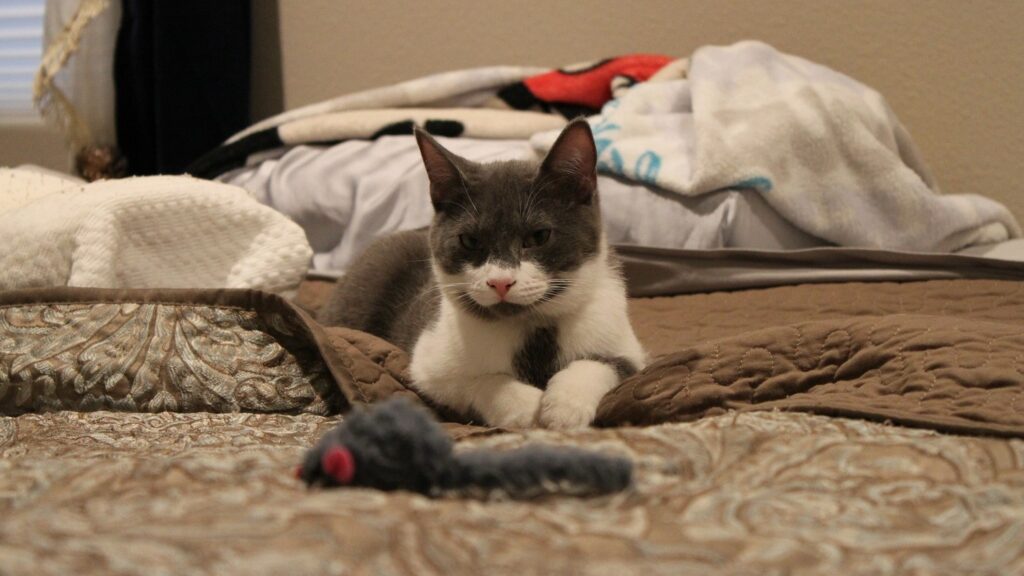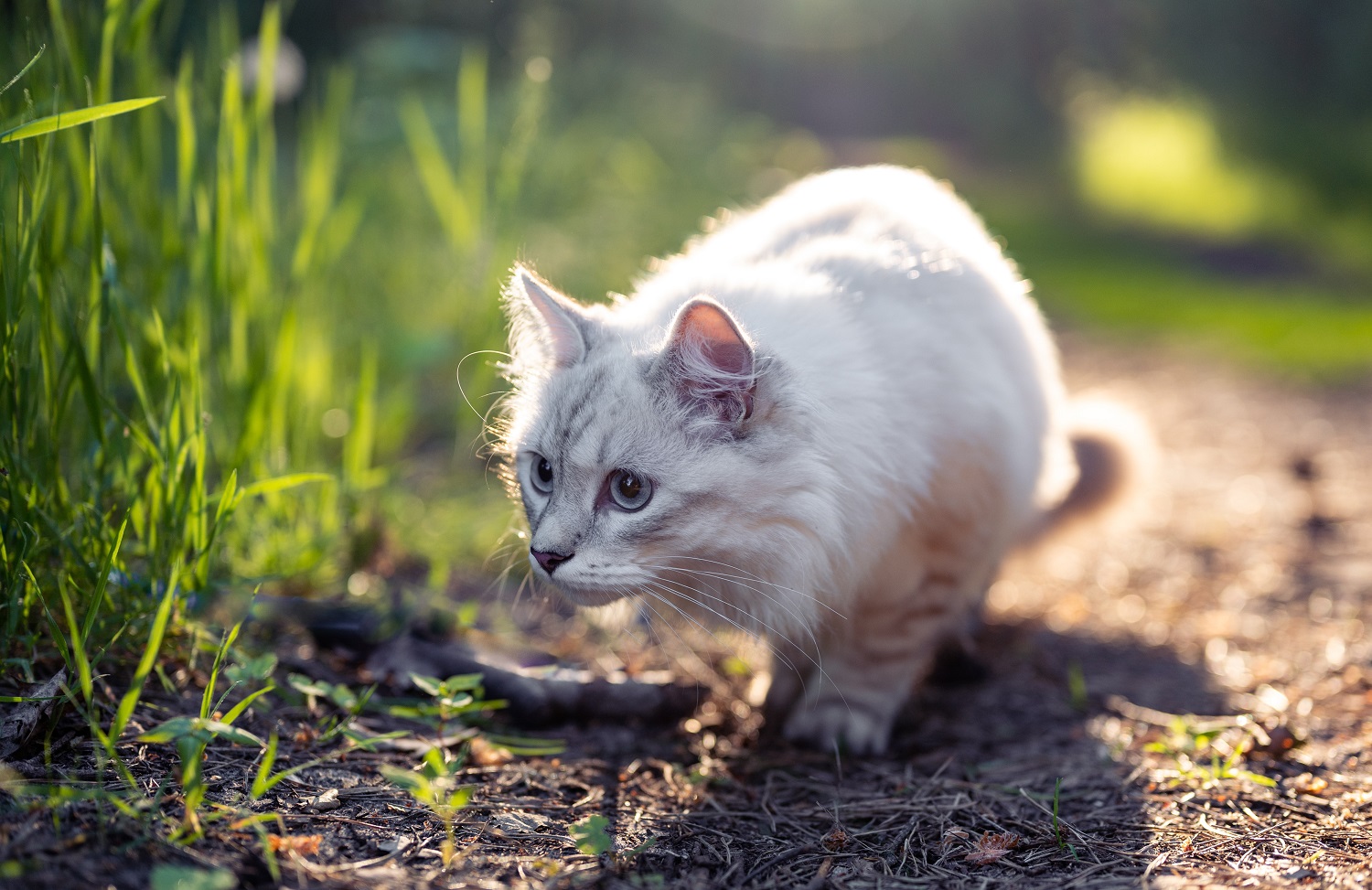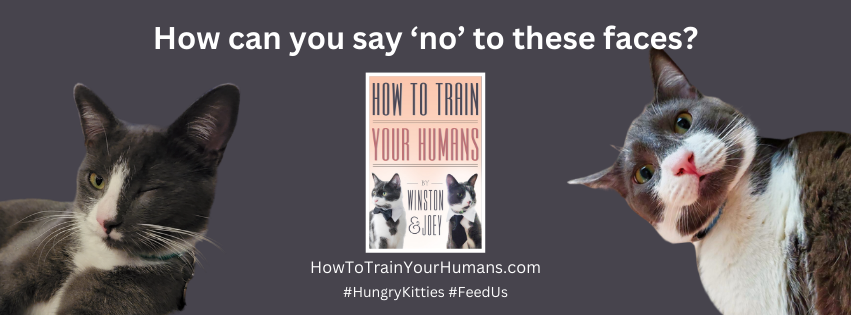Your kitten pounces on a sock, wrestles it to the ground, and then proudly walks away like they just took down a wild beast. That was not random silliness. That was instinct in action.
Kittens are natural hunters, but that does not mean they know everything right away. While the urge to stalk, chase, and pounce is hardwired into their little fuzzy brains, hunting is both instinctual and learned. They are born with the drive, but they need time, practice, and a few epic toy battles to sharpen their skills.
Let’s look at how hunting behavior develops, what it looks like in action, and how you can support your kitten’s natural instincts in safe and healthy ways.
The Science Behind Kitten Hunting Behavior
Cats are obligate carnivores. In the wild, their survival depends on hunting and catching prey. That instinct is still alive and well, even in the most pampered house kittens.
From as early as four weeks old, kittens begin to show signs of predatory behavior. You may see them crouch, wiggle, stalk a moving object, and then launch into a pounce. They might not catch anything yet, but their brain is already wired for the hunt.
This behavior is not taught in the traditional sense. It is an evolutionary survival tool that kicks in as kittens develop physically and mentally. You will see it most often during play, which is really just training for the big leagues.
What Kittens Learn from Their Mother
While the instinct to hunt is natural, kittens still need to learn the mechanics of it, and that usually starts with watching their mother.
In wild or feral cat colonies, a mother cat will bring back live prey for her kittens to observe, chase, and eventually catch. She teaches them how to deliver a kill bite, how to stalk quietly, and when to strike. It is a real-world hunting boot camp.
In domestic life, most kittens do not get this hands-on instruction, especially if they were separated from their mother early or raised indoors. That is where toys, playtime, and a bit of encouragement from you come into the picture.
The Stages of Kitten Hunting Play
When your kitten attacks a crumpled receipt or pounces on your feet under the blanket, it is not just cute behavior. It is part of a natural development process.
Here is how that process usually unfolds:
Stalking
Your kitten lowers their body, focuses intently, and silently approaches their target. This teaches patience, balance, and coordination.
Chasing
Once the target moves, the chase begins. Whether it is a toy mouse or your ankle, the pursuit helps refine their speed and reaction time.
Pouncing
The iconic butt wiggle followed by a launch is all about accuracy and timing. They are learning when to strike and how to land.
Biting and kicking
The final step in a successful hunt is the takedown. Your kitten may bite and bunny-kick their toy to simulate a real-life catch.
Each phase helps reinforce critical survival behaviors, even if their prey is just a fuzzy mouse on a string.
How to Encourage Healthy Hunting Play
You do not have to release mice into your living room to satisfy your kitten’s instincts. There are safer, cleaner ways to support their development while giving them the exercise and mental stimulation they crave.
Use interactive toys
Wand toys, feather teasers, and toys that mimic prey movement are excellent for encouraging stalking and chasing. Try to move them in unpredictable ways to keep your kitten engaged.
Let them catch the toy sometimes
Kittens need the satisfaction of a “kill” now and then. Let your toy slow down or stop long enough for them to pounce and claim victory.
Play in short sessions
Kittens play hard in short bursts. Two or three 10 to 15 minute sessions a day can do wonders for their mental and physical development.
Rotate toys
A toy that looks like prey today may become boring tomorrow. Keep a few toys in rotation to make each session feel fresh and exciting.

Oh, the thrill of the hunt! There I was, stealthily stalking my unsuspecting prey—a rather plump and intriguing toy mouse. With my tiny paws, I crept forward, whiskers twitching, eyes locked on the target. The moment was just right, and I pounced! Success! I wrestled with the formidable foe, showing it who’s boss in this household. Oh, and did I mention that I, the fierce little hunter, managed this feat on the treacherous terrain of Mom and Dad’s bed? Take that, Mr. Mouse! #FearlessFeline #ComforterCougar #MightyKittenHunter #PillowtopProwler
Joey
Do All Cats Have the Same Hunting Instinct?
The instinct to hunt is universal in cats, but the level of drive can vary. Some kittens are naturally more energetic and predatory, while others may be more laid back.
Personality, breed, environment, and early socialization all play a role. Some breeds, like Bengals or Abyssinians, are known for being especially high-energy and prey driven. Other cats may prefer watching birds from the window rather than chasing them in their dreams.
Indoor cats usually do not get to hunt real prey, but their instincts still need an outlet. That is why active play is so important, especially during the kitten stage.
What Happens When Kittens Do Not Get to Practice?
Kittens who do not have regular opportunities to play or exercise their hunting instincts can develop behavioral issues. Boredom, frustration, and pent-up energy may lead to:
- Biting or clawing during petting
- Aggression toward other pets
- Destructive behaviors like scratching furniture
- Hyperactivity at night when no one is around to play
Providing outlets for your kitten’s instincts helps prevent these problems and supports a well-rounded, confident adult cat.
Final Thoughts: Tiny Predators in Training
Your kitten may look like a fluffy cuddlebug, but deep down, they are a little predator in training. Hunting behavior is natural, instinctive, and necessary for their growth. Whether they are chasing toy mice, leaping for feathers, or stalking dust bunnies, they are sharpening skills that are as old as their species.
You do not need to teach your kitten how to hunt. You just need to give them the time, space, and play to practice it in safe and enriching ways. And maybe protect your toes while you are at it.
Remember, every pounce is progress. Let them hunt, let them win, and enjoy watching your tiny tiger grow into a confident and well-adjusted cat.
Sources:
Do Kittens Know How to Hunt? https://www.petmd.com/cat/behavior/do-kittens-know-how-to-hunt
Understanding Kitten Play https://www.humanesociety.org/resources/playing-your-kitten
Feline Predatory Behavior https://vcahospitals.com/know-your-pet/kitten-behavior-and-play
Kitten Development and Instincts https://www.icatcare.org/advice/kitten-behaviour-and-training
Recent Posts
Explore why cats sleep so much, including the evolutionary reasons and the health benefits they derive from their extensive sleep patterns.
Explore the causes of cat dandruff, its implications, and effective ways to deal with it so your feline friend remains happy and healthy.


